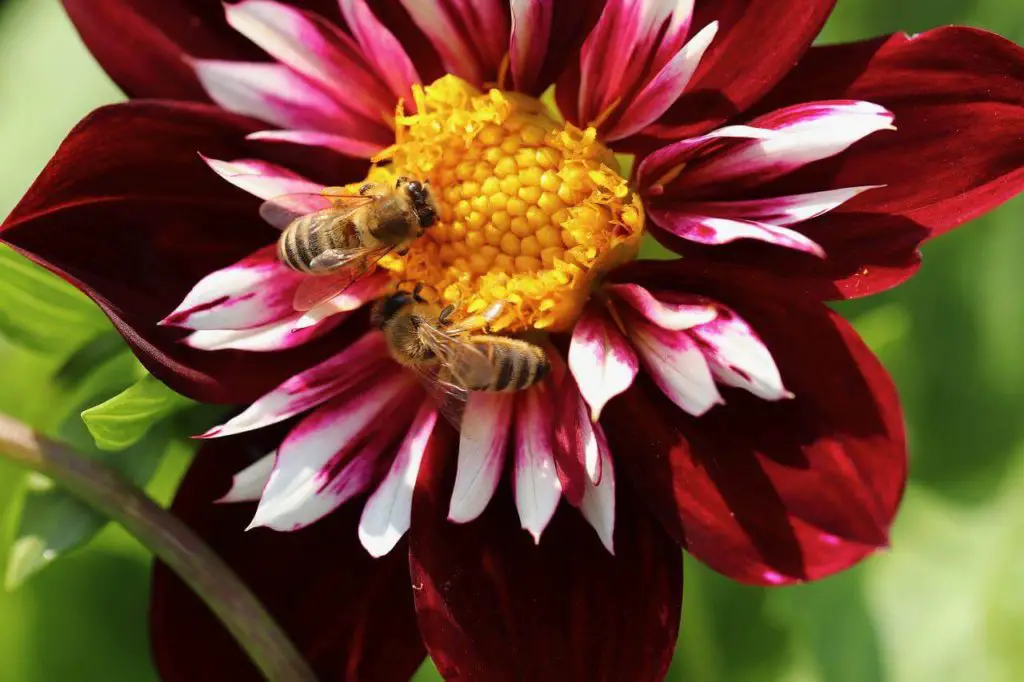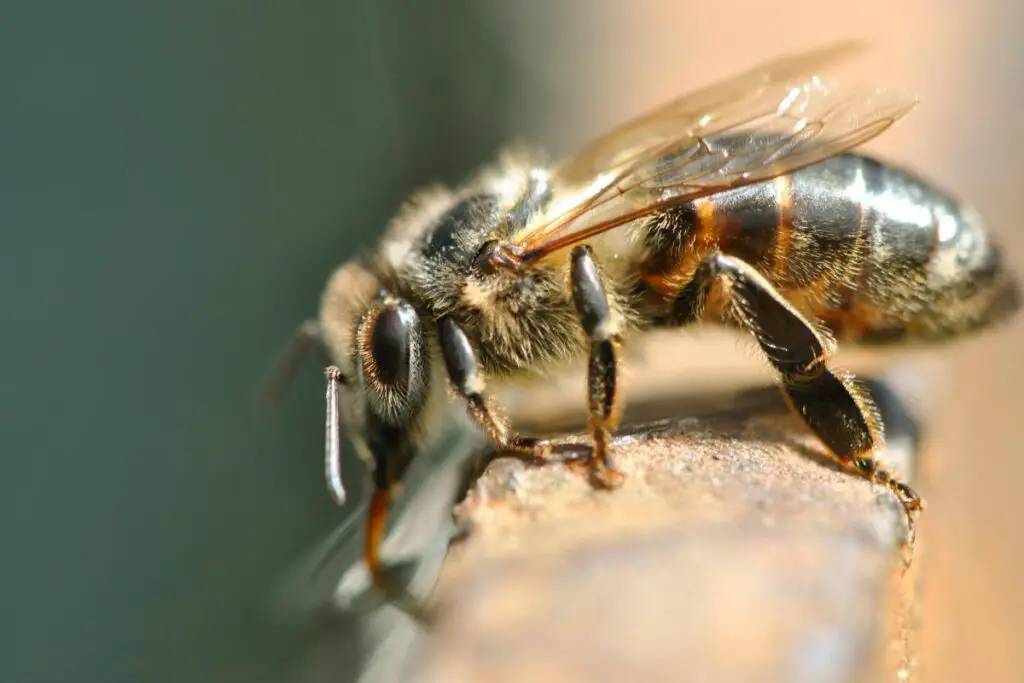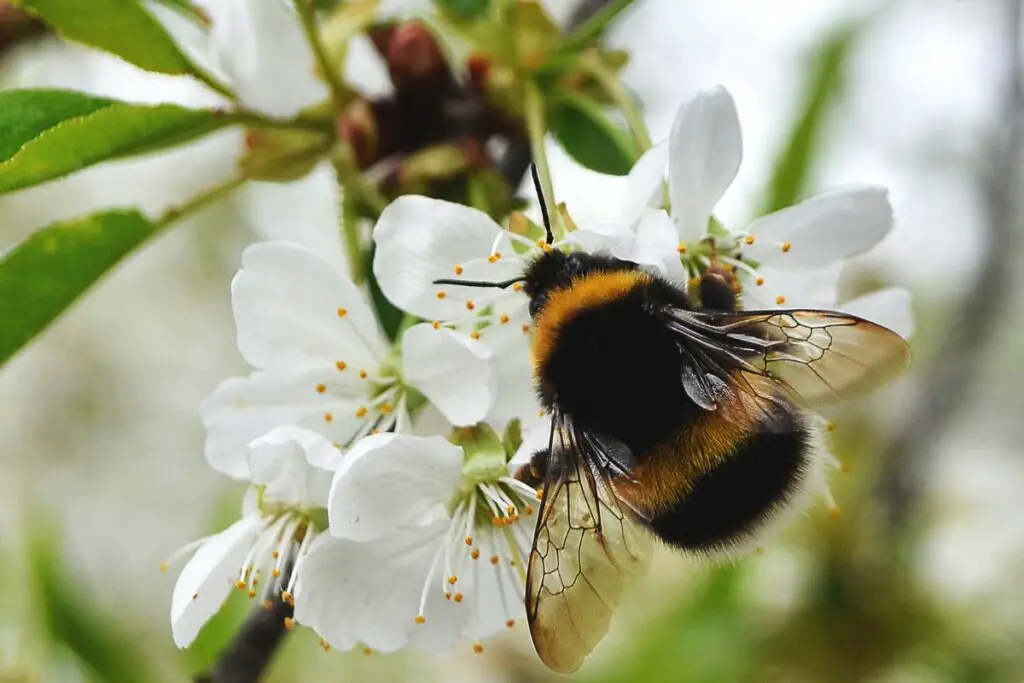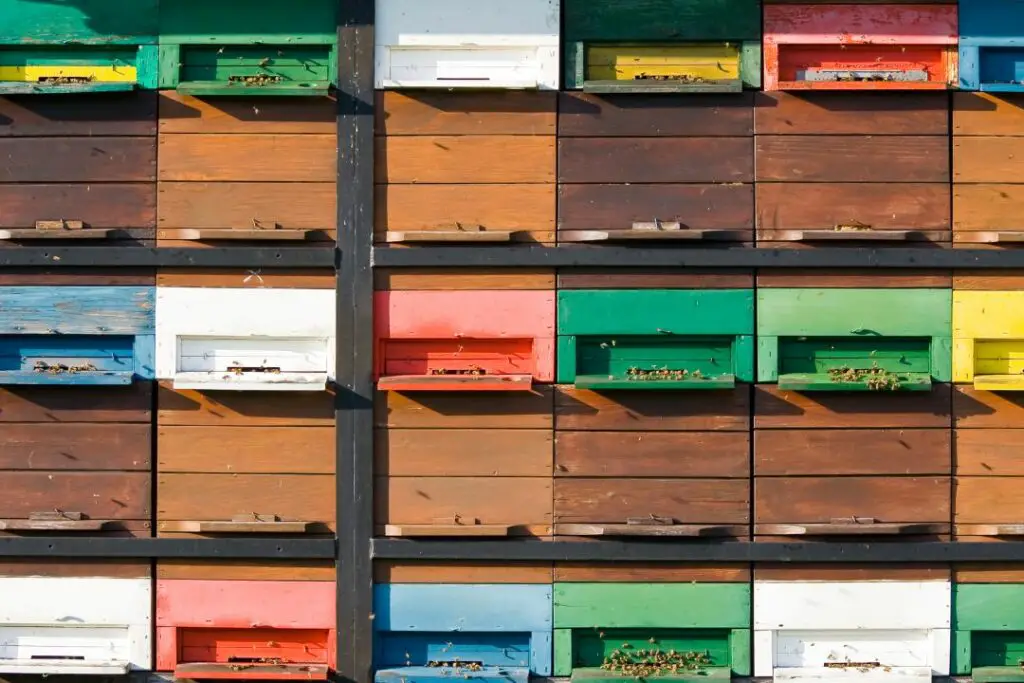Last updated on September 21st, 2023 at 12:15 pm
Yes, while bees aren’t attracted to blood in particular they are often observed drinking foul liquids including blood due to the minerals contained within.
Many beekeepers operate on working farms and there have been many reports of bees investigating and drinking spilt blood from farm animals.
This extends to other bodily fluids as well, believe it or not, bees are attracted to urine due to the mineral and salt content that their floral diet lacks.
Why do bees consume blood?
It’s somewhat of a misunderstanding that bee diets consist solely of pollen and nectar. It fits a rather romantic image of the bee but does not take into account the full nutritional profile a bee needs throughout its lifespan.
While these two food sources do make up large swathers of their diet they also need to recover minerals and salts that aid them with their growth and general health.
Bood offers many of the other minerals and salts that bees need to thrive. These same minerals can also be found in the following:
- Tears
- Sweat
- Urine
- Carrion
- Honeydew
Some bees have been observed consuming the honeydew produced on the back of aphids. Find out more about bees and aphids in our short read do bees eat aphids.
All of these sources are suitable for bees to recover the nutrition they need.
Which bees are most likely to consume blood
There are some species of bees that have evolved to take advantage of bodily fluids. They make up large percentages of their diet and in some cases are the primary food source.
Let’s take a closer look at some of the bee species that consume blood and other bodily fluids:
Vulture bees
This neotropical Trigona species has evolved to consume carrion as its primary source of food. These bees have opted to forage inside and around dead animals to collect protein-rich meat. This is digested in the bee’s gut and returned to the hive to be processed into honey.
Yep, you heard it right, meat honey!
The honey produced by Vulture bees is much darker, thicker and stickier than traditional honey. Unsurprisingly, it also has a much higher protein content due to the meat proteins present.
Flavours of Vulture bee honey have been described as uniquely sweet, smokey, salty and intense. I haven’t had the pleasure of sampling any honey produced by Vulture bees but intend to and will update this post with my experience.
Sweat bees
Sweat bees is a term used to cover the range of species that will happily consume animal and human sweat to gather nutrition. Reports often confine sweat collecting bees to the Halictidae family, while this is true of some members of this family not all bees of the Halictidae family consume sweat.
Additionally, there are several species outside of the Halictidae that have been recorded feeding on sweat.




